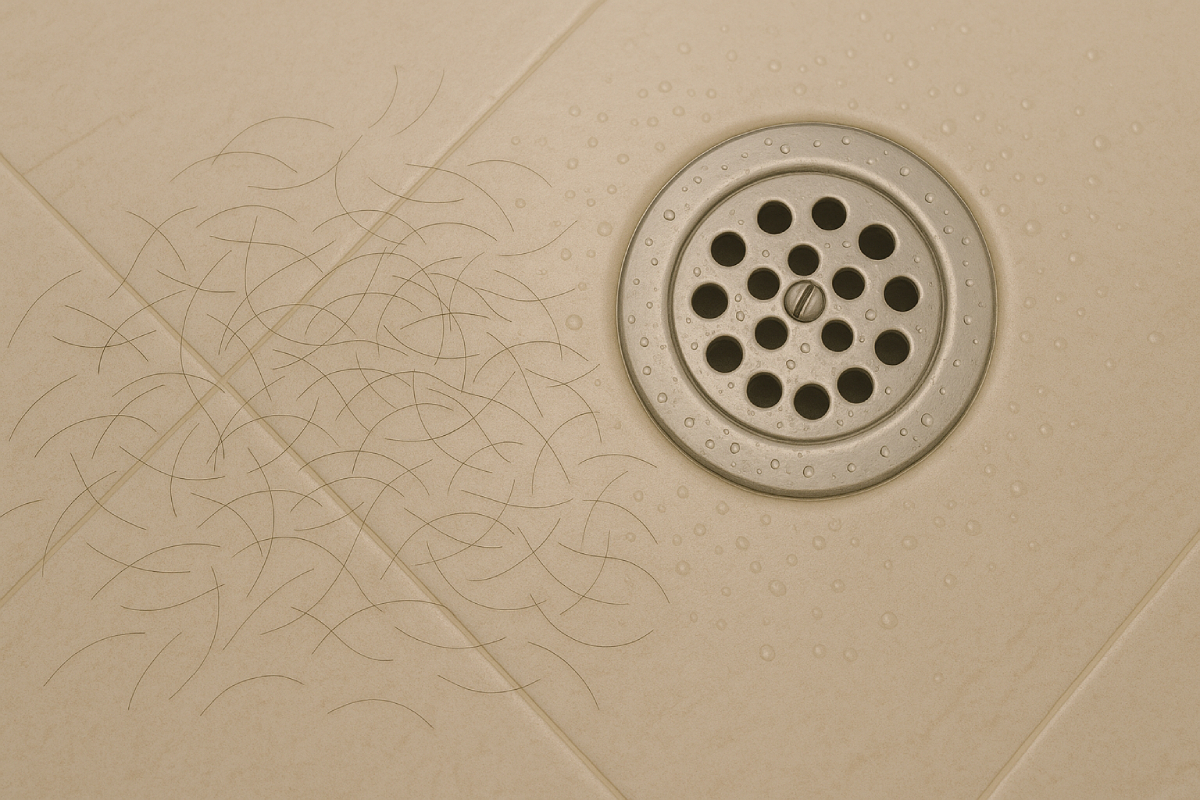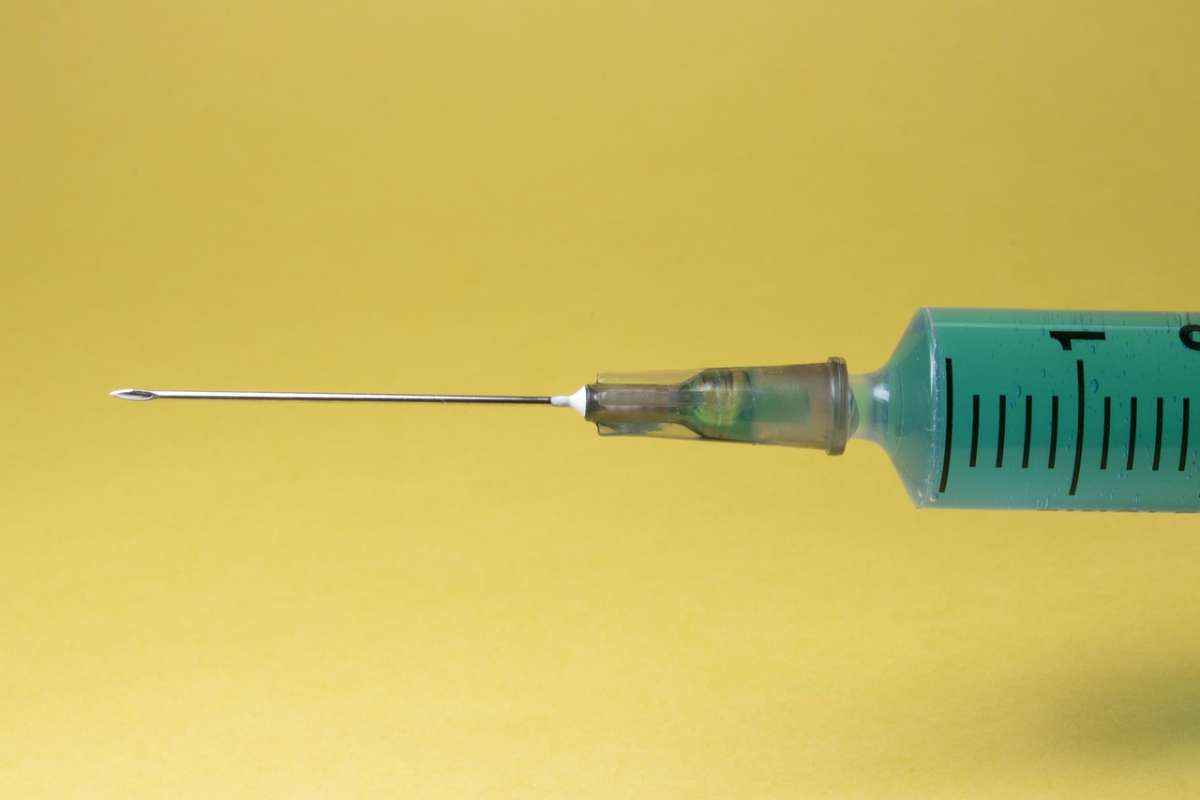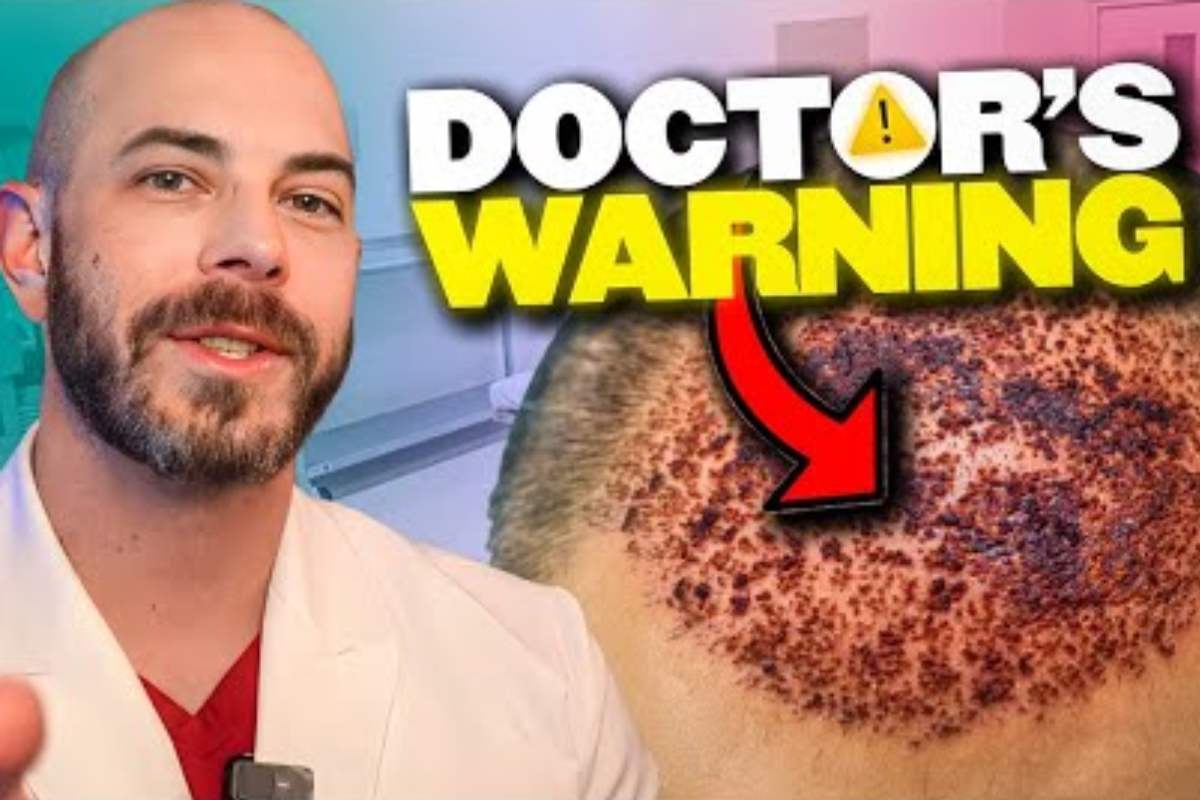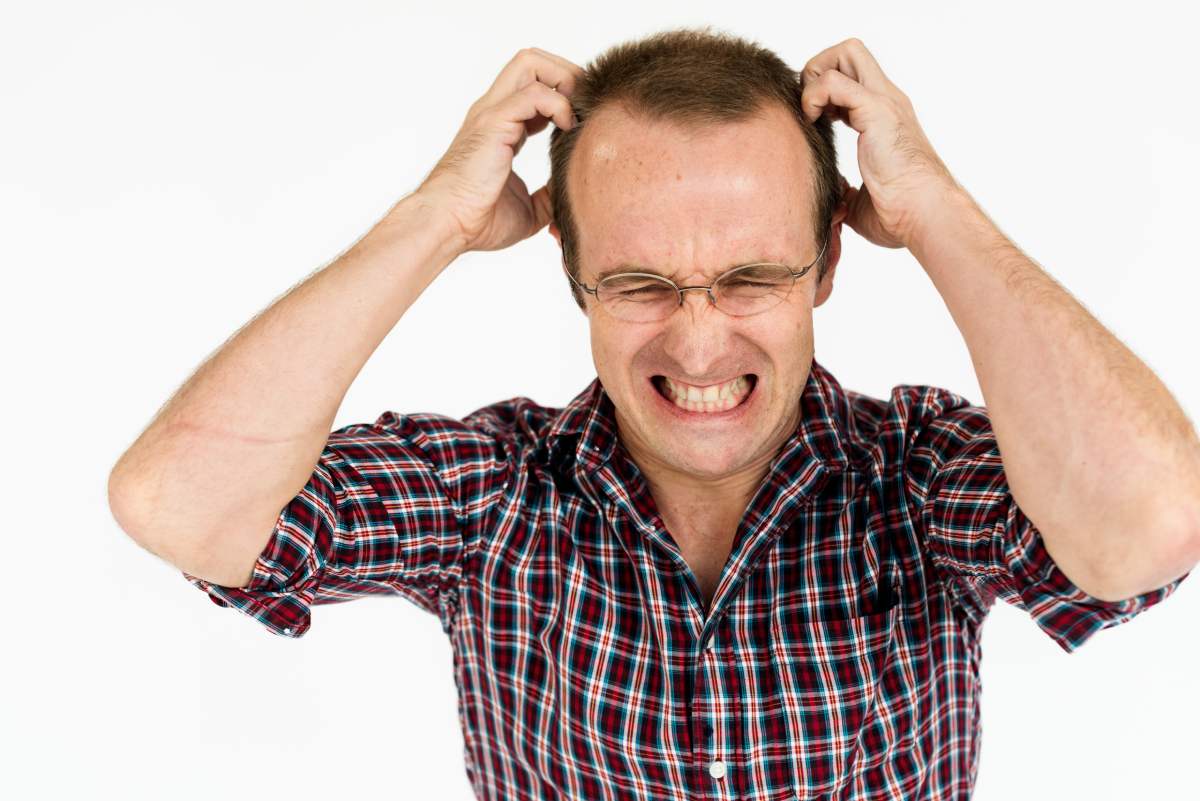Accutane, or isotretinoin, is a medication many people turn to when battling severe acne. It’s well-known for its ability to clear up stubborn skin conditions that other treatments cannot control. But alongside its effectiveness, there are potential side effects that might give patients pause.
One common question people have is, “Does Accutane cause hair loss?” If you’re considering Accutane or are already taking it, worries about hair thinning or shedding might be concerning. Understanding the connection between Accutane and hair loss can help you make informed decisions about your treatment plan.
What Is Accutane?
Accutane is a medication used to treat severe acne. It’s often prescribed when other treatments like topical creams and oral antibiotics haven’t worked. For many people, Accutane has been a solution after years of struggling with stubborn breakouts.
So, how does it work? Isotretinoin is a derivative of vitamin A. It reduces the amount of oil produced by the skin’s sebaceous glands. Less oil means fewer clogged pores and a lower chance of acne-causing bacteria thriving. It also helps the skin renew itself more quickly, aiding in the healing of existing blemishes.
While Accutane is effective in treating severe acne, it’s a powerful drug with a range of potential side effects.
Knowing how it works and what it does is important before starting treatment. There are many side effects that can come from using this drug, so you will want to talk with your doctor to ensure that the benefits outweigh the risks.
Note that brand-name Accutane is no longer available in the United States; however, generic isotretinoin as well as other branded medications such as Absorica, Amnesteem, Claravis, Myorisan, and Zenatane are available by prescription. We will refer to this medication as Accutane in this article for consistency and because many patients and physicians alike continue to recognize this treatment by its former brand name.
Common Side Effects of Accutane
While Accutane can be a game-changer for severe acne, it’s important to be aware of its common side effects. Knowing what to expect can help you manage them effectively and decide if this treatment is right for you.
Some of the most frequently reported side effects include:
- Dry Skin and Lips: Many users experience dryness, especially on the face and lips. Regular moisturizing and lip balm become essential.
- Nosebleeds: Dryness can extend into the nasal passages, sometimes leading to nosebleeds.
- Dry Eyes: Eyes might feel dry or irritated, which can be uncomfortable for contact lens wearers.
- Sensitivity to Sunlight: Skin may become more sensitive to UV rays, making sun protection crucial.
- Muscle and Joint Pain: Some people notice aches or stiffness, especially with physical activity.
These side effects occur because Accutane reduces oil production, affecting not just acne but also the natural moisturizers in your skin and mucous membranes.
Hair-Related Side Effects
Among the various side effects, changes to your hair can also occur.
- Hair Thinning: Hair might feel less thick than usual.
- Hair Loss: In certain cases, increased hair shedding happens during treatment.
These hair-related issues are less common but can be concerning. Understanding why they happen can help in managing them and discussing options with your healthcare provider.
Does Accutane Cause Hair Loss?
Hair loss is a concern that some Accutane users have experienced. And while not everyone experiences this side effect, understanding how Accutane might contribute to changes in hair can help ease worries.
Hair loss from Accutane is considered a rare side effect, with studies suggesting that less than 10% of users experience hair thinning or increased shedding. So while the myth is perpetuated greatly by the internet & social media, it is possible but the risks are fairly low.
Accutane works by reducing oil production in the skin, which is how it effectively treats severe acne. However, this reduction in oil can also affect the scalp’s natural oils that are essential for healthy hair. It may alter the normal hair growth cycle by pushing more hairs into the shedding phase, known as telogen effluvium. This shift can lead to noticeable hair loss during treatment.
Additionally, Accutane might impact how the body absorbs certain nutrients important for hair health, such as zinc and iron. A deficiency in these nutrients can contribute to hair thinning. Also, isotretinion is shown to lower Biotinidase enzyme activity in the liver. Biotinidase is an enzyme that recycles Biotin, a B vitamin also known as B7 or vitamin H. Biotin is essential in the synthesis of hair. So, if you are taking isotretinoin, it may be helpful to supplement with a little extra Biotin to maintain the health of your hair or even prevent some of the shedding or thinning that some patient report during treatment.
Finally, Accutane and retinoids in general are Vitamin A derivatives. High or low levels of Vitamin A can cause hair changes.
While these effects can be unsettling, dermatologists point out that hair loss from Accutane is usually temporary. The hair effected by the drug typically returns to its normal growth cycle after completing the medication.
Understanding these factors can help manage expectations and spur conversations with your healthcare provider about any concerns regarding hair loss while on Accutane.
Hair Loss Associated with Accutane
Experiencing hair loss while on Accutane can be alarming. The primary type of hair loss associated with Accutane use is known as telogen effluvium.
Telogen Effluvium
Telogen effluvium is the most common form of hair loss linked to Accutane.
- Disruption of Hair Growth Cycle: Hair grows in cycles, and Accutane can push more hairs into the shedding phase (telogen phase) prematurely.
- Increased Shedding: You might notice more hair falling out during brushing or washing.
- Usually Temporary: This type of hair loss is often reversible once the medication is stopped or as your body adjusts.
- Onset and Duration: Telogen effluvium develops over weeks to months and typically resolves over six months and up to two years.
Factors like stress, nutritional deficiencies, and hormonal changes can also contribute to telogen effluvium. Accutane adds to this by affecting the scalp’s environment and hair follicles.
Recognizing the signs early will allow you to talk with your doctor to help determine the cause and recommend strategies to manage hair loss while on Accutane.
Risk Factors for Hair Loss on Accutane
Not everyone who takes Accutane will experience hair loss. However, certain factors can increase the likelihood of this side effect.
Dosage and Duration
The amount of Accutane prescribed and how long you take it can impact the risk of hair loss. Higher doses may have a more significant effect on the hair growth cycle. Longer treatment periods give the medication more time to influence hair follicles. If you’re on a high dose or extended course, it’s important to monitor any changes in your hair.
Individual Susceptibility
Everyone’s body reacts differently to medications. Some people may be more prone to hair loss due to genetics or pre-existing conditions. Factors that can increase individual susceptibility include:
- Family History: A genetic predisposition to hair thinning or baldness can make you more sensitive to hair loss triggers.
- Age and Hormones: Hormonal fluctuations, especially during certain life stages, can affect hair health.
- Stress Levels: High stress can contribute to hair shedding, and combining this with Accutane might amplify the effect.
Nutritional Deficiencies
Accutane can influence how your body absorbs nutrients essential for healthy hair growth. Deficiencies in vitamins and minerals like iron, zinc, and biotin can lead to hair thinning. Maintaining a balanced diet while on Accutane is important.
Other Medications and Health Conditions
Taking other medications alongside Accutane may also increase the risk of hair loss. Some drugs have side effects that include hair thinning and combining them with Accutane can intensify this issue. Additionally, underlying health conditions such as thyroid disorders or autoimmune diseases can contribute to hair loss.
Understanding Your Risk
Being aware of these risk factors allows you to take proactive steps. Discuss your medical history and any concerns with your healthcare provider before starting Accutane. They can help tailor your treatment plan to minimize potential side effects, including hair loss.
Managing and Preventing Hair Loss While on Accutane
Experiencing hair loss during Accutane treatment can be concerning, but there are steps to manage and prevent it. Proactive attention to hair care and overall health makes a significant difference while on this medication.
Firstly, consult your doctor if you notice any hair thinning or shedding. They might adjust your dosage or suggest strategies to mitigate hair loss. Open communication ensures side effects are addressed promptly, allowing for appropriate interventions.
Maintaining a balanced diet is crucial for hair health. Incorporate foods rich in protein, such as lean meats, eggs, and legumes, to support hair strength. Vitamins and minerals like iron, zinc, and biotin, found in spinach, nuts, and whole grains, help promote hair growth. Omega-3 fatty acids from sources like salmon and flaxseeds nourish the scalp. A well-rounded diet provides the nutrients your hair needs, especially if Accutane affects nutrient absorption. Caution with supplement use, though, as you should not be taking extra vitamin A while on Accutane.
Adopting gentle hair care practices also reduces breakage and shedding. Limiting the use of harsh chemicals by avoiding hair dyes, bleaches, and perms helps maintain hair integrity. Using mild, sulfate-free shampoos prevents scalp irritation, and reducing heat styling minimizes damage from blow dryers, curling irons, and straighteners.
Managing stress levels is another important factor, as stress contributes to hair loss. Incorporate stress-reducing activities into your routine, such as regular exercise like yoga, walking, or cycling, to alleviate stress. Mindfulness practices like meditation or deep-breathing exercises promote relaxation. And don’t forget to get a good night’s sleep.
Staying hydrated is also essential, especially since Accutane often causes dryness throughout the body. Drinking plenty of water keeps your scalp hydrated, which improves hair condition. Some individuals consider supplements to support hair growth, but you should consult your doctor before starting any new supplements to ensure it’s safe and won’t interfere with Accutane.
Is Accutane Hair Loss Permanent?
Most hair loss from Accutane is due to telogen effluvium, where hair follicles enter the shedding phase earlier than normal. This condition typically resolves on its own once the underlying cause is addressed, in this case, after completing Accutane treatment or adjusting the dosage. Hair generally begins to regrow several months after stopping the medication.
The recovery timeline can vary from person to person. Factors like overall health, age, and the duration of Accutane use can influence how quickly hair returns to its normal fullness. It’s important to be patient during this period, as it may take six to twelve months for noticeable regrowth.
If hair loss continues or worsens after stopping Accutane, consult with your doctor. Persistent hair thinning might be due to other factors unrelated to Accutane, such as hormonal imbalances, genetic predisposition, or nutritional deficiencies. A medical evaluation can help identify any underlying issues and recommend appropriate treatments.
Monitoring your hair’s condition during and after Accutane treatment is important. With time and proper care, most people experience a return to their normal hair growth cycle.
Accutane and Hair Loss
Understanding the connection between Accutane and hair loss is important when considering acne treatment options. Accutane is highly effective for severe acne but comes with potential side effects, including hair thinning or shedding. While the possibility of hair loss can be worrying, it’s usually temporary, and hair often returns to its normal growth cycle after completing the medication.
Taking proactive steps can help manage any hair changes during treatment. Maintaining a balanced diet rich in essential nutrients supports hair health. Gentle hair care practices and stress management also play significant roles in promoting healthy hair while on Accutane.
If you notice hair loss or have concerns about Accutane and hair health, don’t hesitate to reach out to your doctor. They can provide personalized guidance, adjust your treatment plan if necessary, and explore alternative options that suit your needs.
Accutane can be a valuable tool in achieving clearer skin, but staying informed about its effects helps you make the best decisions for your overall well-being. By understanding the potential impacts and working closely with your doctors, you can navigate your acne treatment with confidence.







